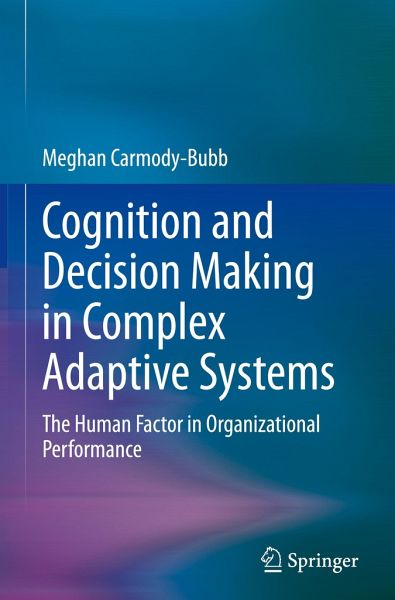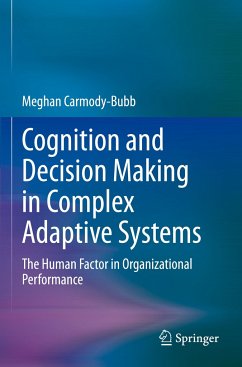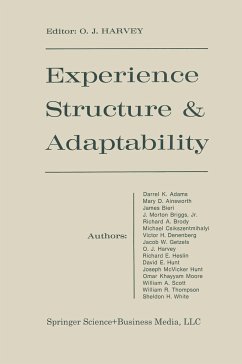
Cognition and Decision Making in Complex Adaptive Systems
The Human Factor in Organizational Performance
Versandkostenfrei!
Versandfertig in 6-10 Tagen
106,99 €
inkl. MwSt.
Weitere Ausgaben:

PAYBACK Punkte
53 °P sammeln!
This book explains the role of human behavior research, from both a historical and modern perspective, in improving objective, measurable performance outcomes to include safety, strategic decision making, and organizational performance. The book builds upon empirically supported foundations of human cognition, but with a focus on applying this knowledge in a manner that can improve human decision-making to enhance safety and performance. It includes explanations of how the human mind processes information, including differences in novice versus expert information processing, and tools to comba...
This book explains the role of human behavior research, from both a historical and modern perspective, in improving objective, measurable performance outcomes to include safety, strategic decision making, and organizational performance. The book builds upon empirically supported foundations of human cognition, but with a focus on applying this knowledge in a manner that can improve human decision-making to enhance safety and performance. It includes explanations of how the human mind processes information, including differences in novice versus expert information processing, and tools to combat various cognitive biases. Explained within the framework of complex adaptive systems, this book builds upon resources developed through the author's years of combined applied research and graduate teaching and includes chapters on the roles of uncertainty and complexity within scientific research. Finally, the book offers tools that are rooted in empirical research and demonstrated within thecontext of contemporary, real-world scenarios, with a focus on improving organizational effectiveness through improved strategic decision making and the development of learning cultures within organizations.














